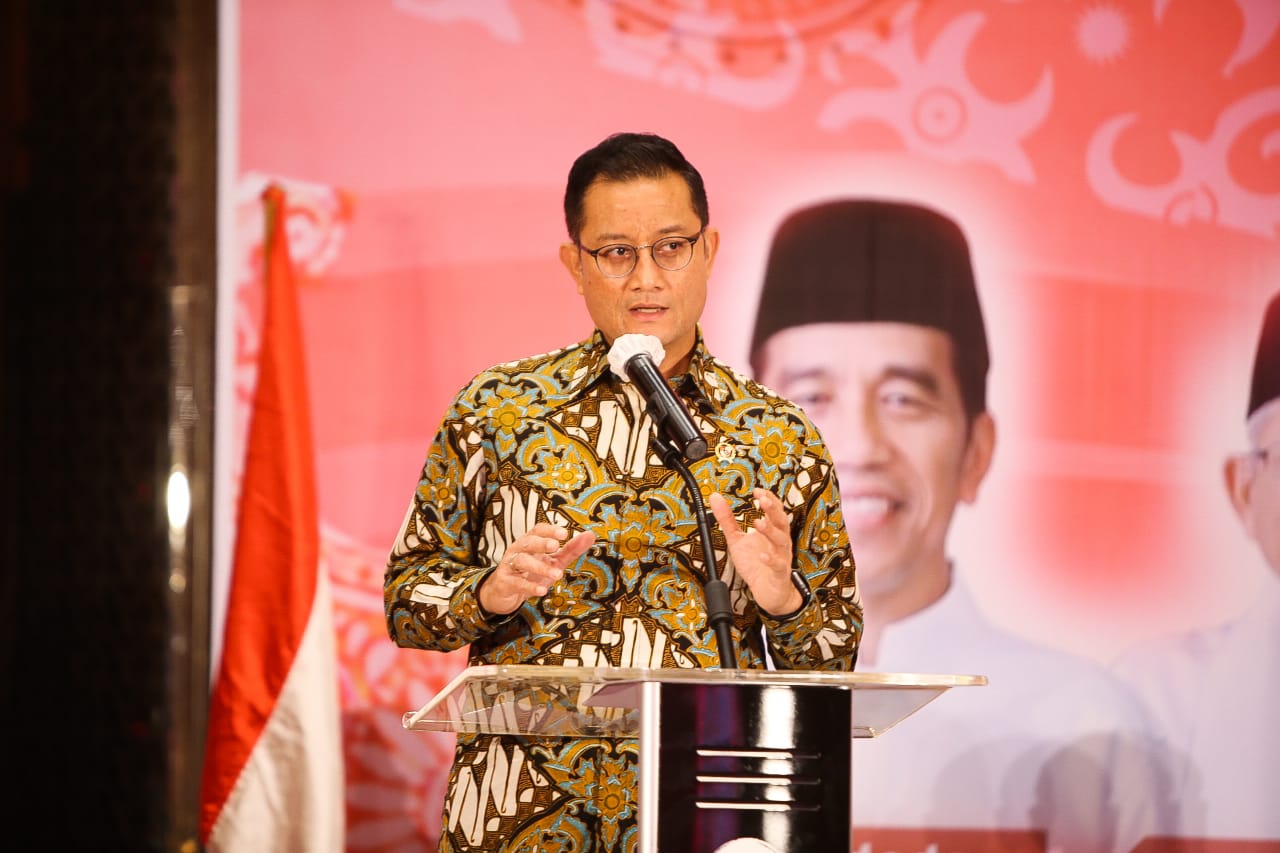Ministry of Social Affairs Encourages Acceleration of KAT Empowerment Budget Realization

JAKARTA (July 28th, 2020) – In order to boost the current Indonesian economy, one of the things that can be done by Ministries / Institutions is increasing the realization of state spending. In response to this, Ministry of Social Affairs, especially Directorate General of Social Empowerment, accelerates the realization of the budget for empowering Remote Indigenous Communities (KAT).
Directorate of Remote Indigenous Community Empowerment (PKAT) held a 4-day activity from 27-30 July 2020 aimed at encouraging regional governments or district / city social services that received the KAT empowerment Deconcentration and Co-Administration Fund to immediately accelerate the realization. This activity was attended by 78 participants from 23 Provinces and 16 Regencies, consisting of the Social Service and Social Welfare Institutions (LKS) involved in KAT empowerment.
The Indonesian Minister of Social Affairs Juliari P. Batubara officially opened the activity, while at the same time giving directions related to the Remote Indigenous Community Empowerment Policy.
"The State through the Ministry of Social Affairs continues to try to give extra attention to our brothers and sisters who were in the Remote Indigenous Communities during the COVID-19 pandemic," explained Juliari.
Juliari also encouraged his staff to create programs which the benefits can be truly felt by all people.
Director General of Social Empowerment Edi Suharto added a few points about Empowerment of Remote Indigenous Community Based on Stakeholders (PKAT Best). PKAT Best is a program to strengthen KAT empowerment to be able to meet and improve the life quality of KAT residents in a sustainable manner.
The PKATBest Model for KAT Empowerment Based on Stakeholders focuses on strengthening 4P, such as:
1. People (knowledge, health, local wisdom);
2. Production (livelihood, agriculture, plantation);
3. Planet (environment, settlement);
4. Partnership (Social Welfare Institution, Social Affairs, Business).
During the COVID-19 pandemic, the Directorate of KAT Empowerment distributed BST to 1,135 KPM recipients of BST in 32 villages for Suku Anak Dalam (SAD) Jambi in mid-July.
Today (07/28), Ministry of Social Affairs also provided social assistance from domestic grants worth Rp. 251,200,000, - for residents of the Suku Anak Dalam in Jambi Remote Indigenous Communities through the coordinator of the acceleration of Indonesian Conservation Community (KKI) Conservation Information Services Foundation (Warsi), Putri Mushandari Pratami.
"We will distribute this assistance to all Orang Rimba, Talang Mamak, and Batin Sembilan who are in Jambi and Riau. In the form of basic food packages, according to the needs of KAT residents at the location," Putri explained.
Once again at the end of the event, the Minister of Social Affairs instructed that the TP budget in the regions must be realized immediately, while still applying the principle of accountability.
This activity was also filled by several speakers, namely the Inspector General of the Ministry of Social Affairs, the Secretary General of the Ministry of Social Affairs, the Inspector of the Dayasos & PFM, the Director of KAT Empowerment, and LKPP.
Also attending the activities of Echelon 1, Echelon 2 officials and the Minister of Technical Team within the Ministry of Social Affairs and the Social Empowerment Coordination Forum on KAT.
 English
English
 Bahasa
Bahasa
